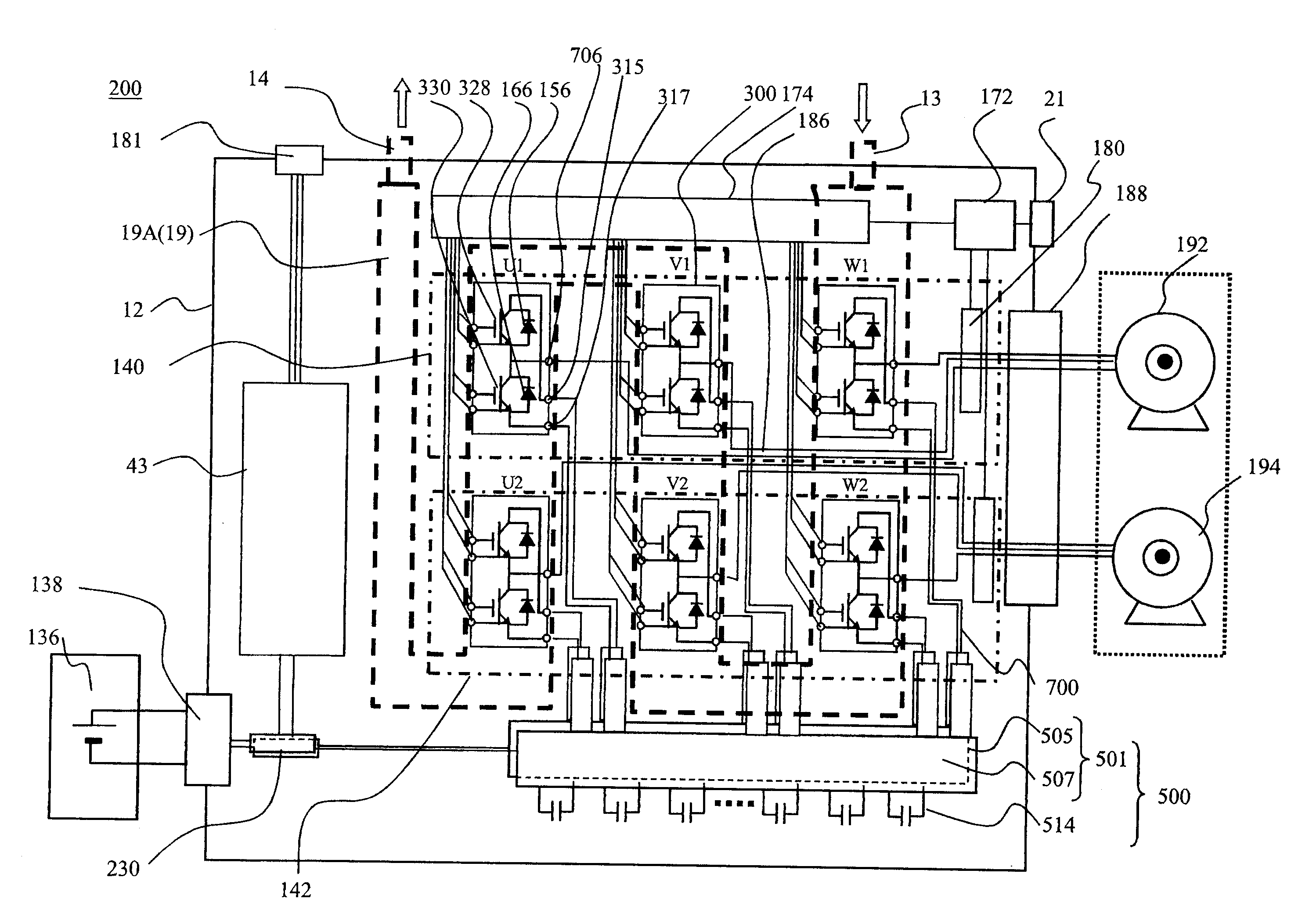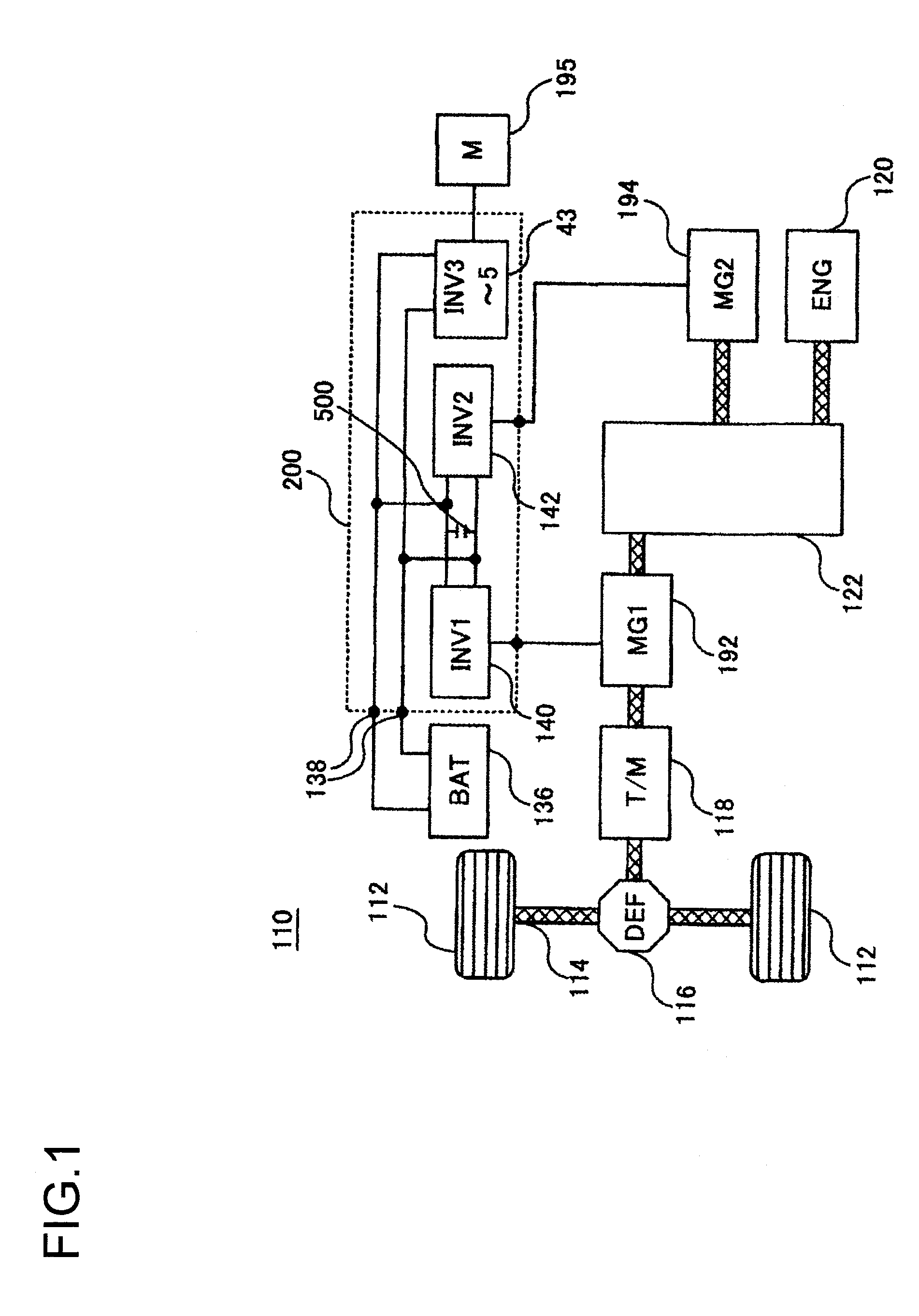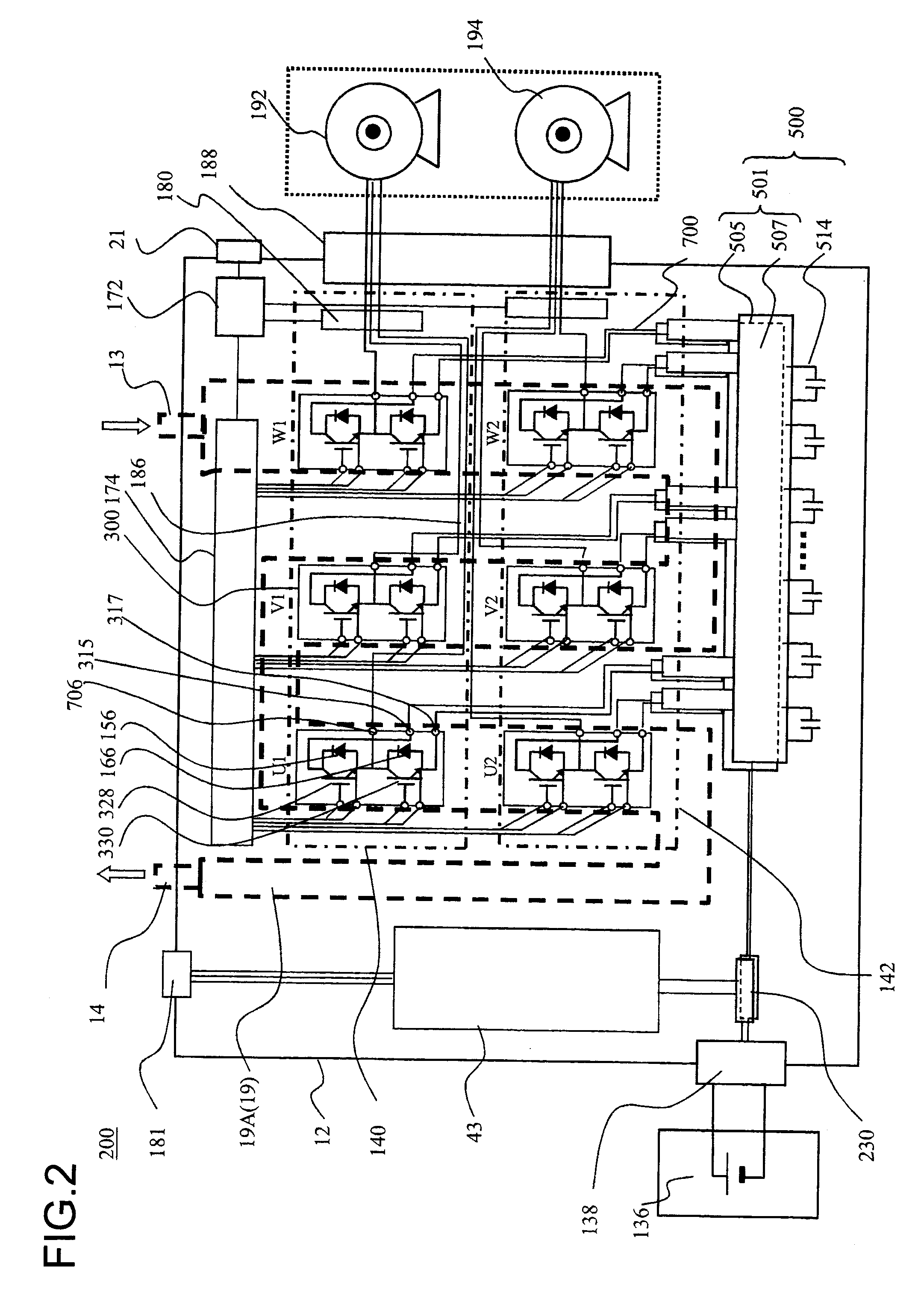Power Module and Power Conversion Device
- Summary
- Abstract
- Description
- Claims
- Application Information
AI Technical Summary
Benefits of technology
Problems solved by technology
Method used
Image
Examples
embodiment 1
[0048]FIG. 1 is a figure showing control blocks of a hybrid vehicle. In FIG. 1, a hybrid electric vehicle (hereinafter termed a HEV) 110 is a kind of electrically powered vehicle that includes two systems for vehicle driving. One of these systems is an engine system that employs an engine 120, that is an internal combustion engine, as a power source. This engine system is principally used as a source of driving power for the HEV 110. The other system is an in-vehicle electric motor system that employs a motor-generator MG1192 and a motor-generator MG2194 as power sources. The in-vehicle electric motor system is principally used as a driving source for the HEV 110 and as a power generation source for the HEV 110. The motor-generators MG1192 and MG2194 may be, for example, synchronous machines or induction machines, and since they can be used both as motors and as generators depending upon the manner in which they are operated, in this specification they will be termed “motor-generato...
embodiment 2
[0133]FIG. 11(a) is a sectional view of a power module 300 according to another embodiment, and FIG. 11(b) is an exploded sectional view of this power module 300 according to another embodiment. While the portions that differ from the first embodiment are explained below, structures to which the same reference symbols are appended as in the first embodiment have the same functions.
[0134]In this embodiment, instead of the insulation sheets 333 according to the first embodiment, aluminum insulation plates 340 are provided. Thin insulating resin layers 342 having good adhesive quality are formed on both of the principal surfaces of each of these aluminum insulation plates 340. An alumite plate 341 is sandwiched between these two layers 342 of insulating resin, and moreover alumite processing is performed upon the entire assembly, so that alumite layers 601 are formed upon its front and rear surfaces. The alumite plate 341 and the two insulating resin layers 342 are adhered together by ...
embodiment 3
[0142]FIG. 16(a) is a sectional view of a power module 300 according to another embodiment, and FIG. 16(b) is a sectional view of this power module 300 according to another embodiment during assembly. While the portions that differ from the first embodiment are explained below, structures to which the same reference symbols are appended as in the first embodiment have the same functions.
[0143]In this embodiment, instead of the can type cooling device 304 according to the first and second embodiment, flow conduit defining members 380A and 380B are employed within which internal flow conduits 381 are defined. As shown in FIG. 16(b), alumite processing as explained for the first embodiment is performed upon the surfaces 382A and 382B of these flow conduit defining members 380A and 380B that contact against the insulation sheets 333.
[0144]Due to this, it is not necessary to form the organic acid type alumite layer 601B upon the interior plane surfaces 308 of the can type cooling device ...
PUM
| Property | Measurement | Unit |
|---|---|---|
| Thickness | aaaaa | aaaaa |
| Metallic bond | aaaaa | aaaaa |
Abstract
Description
Claims
Application Information
 Login to View More
Login to View More - R&D Engineer
- R&D Manager
- IP Professional
- Industry Leading Data Capabilities
- Powerful AI technology
- Patent DNA Extraction
Browse by: Latest US Patents, China's latest patents, Technical Efficacy Thesaurus, Application Domain, Technology Topic, Popular Technical Reports.
© 2024 PatSnap. All rights reserved.Legal|Privacy policy|Modern Slavery Act Transparency Statement|Sitemap|About US| Contact US: help@patsnap.com










